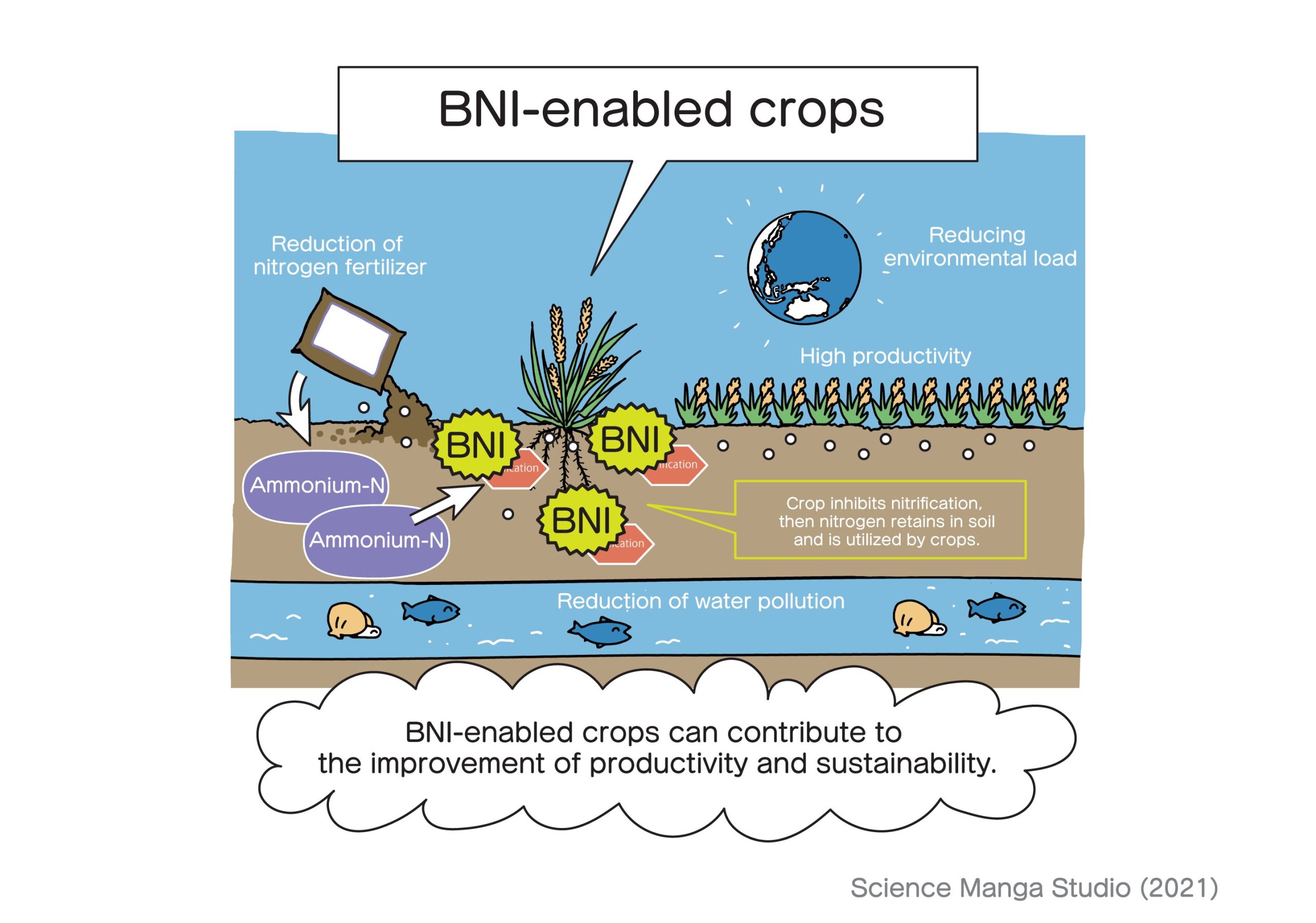Nitrogen-efficient wheat produces more food and less greenhouse gas

An international collaboration has transferred to elite wheat varieties a wild-grass chromosome segment that causes roots to secrete natural inhibitors of nitrification, offering a way to dial back on heavy fertilizer use for wheat and to reduce the crop’s nitrogen leakage into waterways and air, while maintaining or raising its productivity and grain quality, said a report in the Proceedings of the National Academy of Sciences of the United States of America.
Growing wheat varieties endowed with the biological nitrification inhibition (BNI) trait could increase yields in both well-fertilized and nitrogen-poor soils, according to G.V. Subbarao, researcher at the Japan International Research Center for Agricultural Sciences (JIRCAS) and first author of the report.
“Nearly a fifth of the world’s nitrogen-based fertilizer is deployed each year to grow wheat but — as with other major cereals, vegetables, and fruits — the crop takes up less than half of the nitrogen applied,” said Subbarao.
Much of the remainder is either washed away, contaminating ground waters with nitrate and contributing to algae blooms in lakes and seas, or released into the air, often as nitrous oxide, a greenhouse gas 300 times more potent than carbon dioxide.
Using “wide crossing” techniques, Masahiro Kishii and other CIMMYT team members first transferred a BNI-linked chromosome region from the perennial grass species Leymus racemosus into a common wheat landrace and then into several elite CIMMYT wheat varieties, nearly doubling their BNI capacity, according to Hannes Karwat, a CIMMYT post-doctoral fellow and study co-author.
“Several responses in the plants’ metabolism indicated a more balanced uptake of nitrogen,” said Karwat, adding that the BNI-converted wheats also showed greater biomass and grain yield, with no loss of grain protein or breadmaking quality.
Under a project involving JIRCAS, the Indian Council of Agricultural Research (ICAR), and the Borlaug Institute for South Asia (BISA), BNI-converted wheat lines are being tested in India and the BNI trait transferred to popular national wheat varieties.
BNI research by CGIAR and JIRCAS is co-funded by the Ministry of Agriculture, Forestry and Fisheries of Japan.